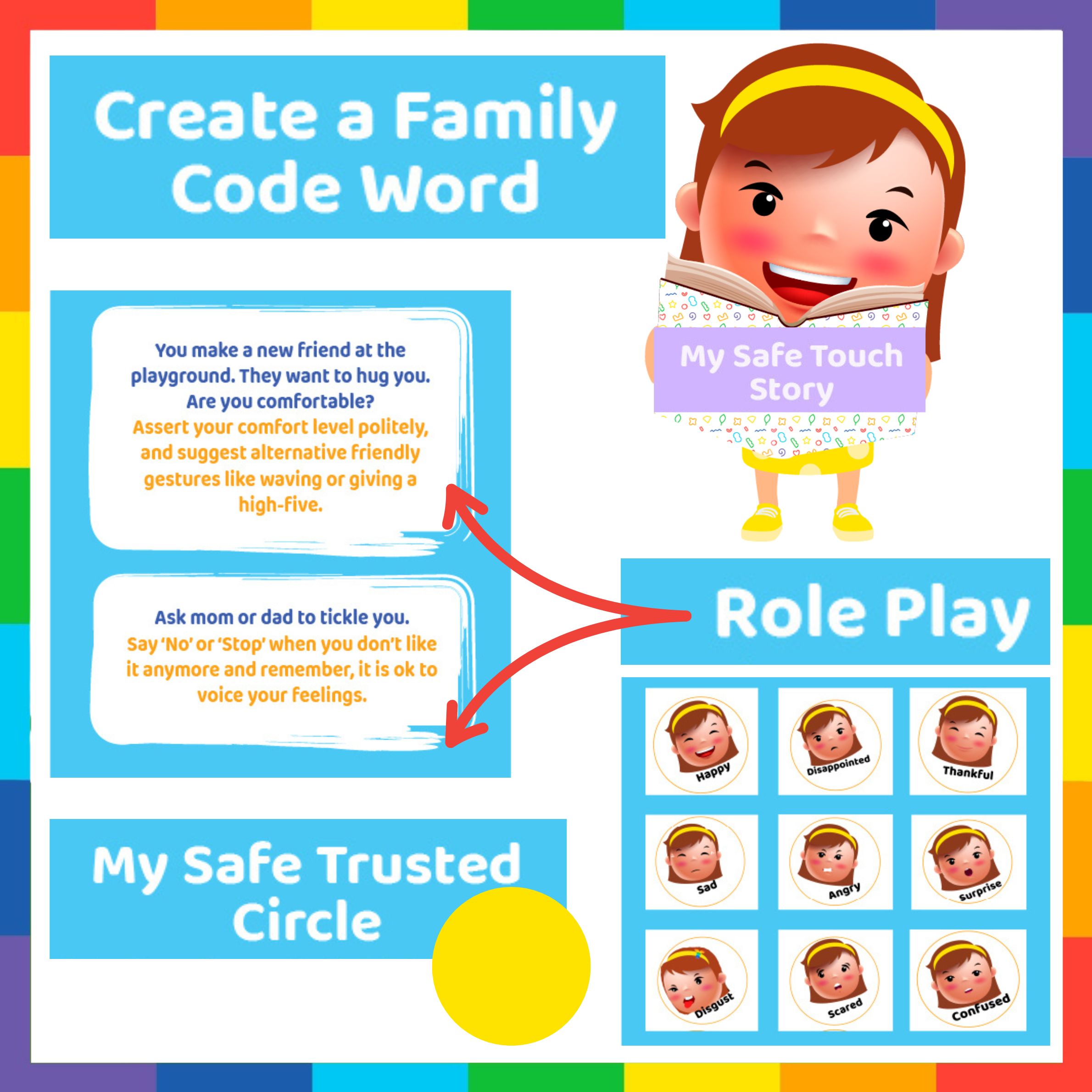
Quick Bites
Why Basic Sex Education is Useful at an Early Age?
February 2, 2025
Related
Topics

Hey
-

Resilience-Building – Easy Checklist for Kids of All Ages
August 13, 2025
-

-

How to Ensure Body Safety of Your Kids? – Summary
February 27, 2025
-

Debunk Common Myths About Safe Touch: Know the Truth
February 23, 2025
-

How to Reinforce Body Safety and Consent?
February 16, 2025
Ready for more?
Hey
Sign up for Rainbow Kiddies newsletters for more stories and updates
Be aware that many children are forced to do sexual acts at a much younger age than you might imagine. Start basic sex education from a very young age. Guide them on how to be assertive, to say no and to mark or define their limits/ boundaries.
As we have always stressed, freedom of expression with parents can go a long way when it comes to a child’s wellbeing. This will also help teenagers who are exploring their sexuality.
It is very important for at least one parent to have a very close and strong bond with the child. For this, listen to them without judging, acknowledge their emotions, help them find solutions rather than provide readymade solutions, talk to them openly, trust them and have open conversations with them. This will in turn help them to trust you and discuss their issues and daily happenings with you. When you try to be a friend to your child, be that much needed friend who they can confide in and trust fully.
Basic Sex Education for Young Children
Children, when as small as 4- or 5-years-old might start asking about genital organs. Tell them what they are and how it is different for boys and girls. Answer their questions and clear their doubts. By doing so they will not end up peeping at someone or indulge in inappropriate behavior due to curiosity.
Help them name their private body parts correctly. Boys should know penis, scrotum, anus and buttocks. Girls should be able to name their breasts/ chest, anus, buttocks, vulva and vagina. Try not to use nicknames for these parts because then it feels like a taboo subject. Kids who see it as a taboo will have trouble opening up about abuse or related health issues. Easiest way to start talking about private parts is by saying that it is what gets covered by a typical swimsuit. We have given a simple picture here for you to use for the same. You may also use our video and story book on this topic to get started.

Understanding Safe and Unsafe Touches – Most Basic of Sex Education
Perpetrators tend to lure kids by showing love or offering to make them feel good. Also it may or may not be painful. So that should not be how they identify an unsafe or safe touch.
Educating children about the difference between safe and unsafe touches is essential. Safe touches are those that make a child feel comfortable and are appropriate, such as a hug from a parent. Unsafe touches involve contact with private parts or any touch that makes a child feel uncomfortable or confused. Teaching children to recognize these distinctions empowers them to protect their personal boundaries.
Encouraging Assertiveness and the Right to Say ‘No’
Children should be taught that it’s perfectly acceptable to say ‘no’ to any touch or situation that makes them uncomfortable, regardless of who is involved. This includes situations involving peers, where pressure to conform can be strong. Role-playing scenarios can be an effective way to practice assertive communication, helping children feel more confident in expressing their boundaries.
The Role of Parents in Building Trust
A strong parent-child bond is foundational for open dialogue. Parents can build this trust by:
- Listening Without Judgment: Encouraging children to share their thoughts and feelings openly, without fear of criticism.
- Acknowledging Emotions: Validating their feelings and experiences, which reinforces their sense of self-worth.
- Collaborative Problem-Solving: Helping children find solutions to their concerns rather than providing ready-made answers, fostering critical thinking and independence.
- Sharing Personal Experiences: Appropriately sharing your own experiences can make children feel more connected and understood.
- Maintaining Open Communication: Regularly discussing daily matters and being transparent builds a habit of open dialogue.
By embodying these practices, parents become approachable figures, encouraging children to confide in them about sensitive issues, including those related to sexuality and personal boundaries.
Tell them that they must tell you when anyone touches them inappropriately. Tell them clearly that they should also never touch anyone’s private body parts, even if requested nicely or offered gifts/ goodies. They should be advised to shout for help or run if anyone tries to grab them.
Also tell them that it is ok if the parents touch those body parts while helping them clean up, shower or change.
Addressing Peer Pressure and Societal Expectations
Children and teenagers often face peer pressure to engage in behaviors they’re uncomfortable with, including sexual activities. It’s important to discuss these pressures openly, reinforcing that their value doesn’t depend on conforming to others’ expectations. Encouraging self-respect and the importance of personal boundaries can help them make decisions aligned with their comfort and values.
Conclusion
Empowering children to understand and assert their personal boundaries is a fundamental aspect of their development. Through open communication, sex education, and support, parents can equip their children with the tools necessary to navigate complex social situations, resist undue pressures, and develop healthy relationships grounded in mutual respect and understanding.
Read this post to know more about how to handle topics related to sexuality with teens and older kids.
Sign Up for your Free Parenting Guide: “10 Everyday Ways to Raise an Emotionally Strong Child”

